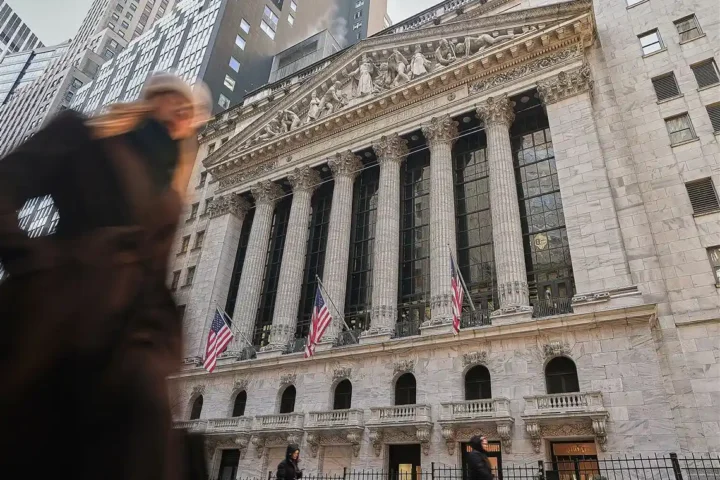France teeters on the brink of a political earthquake as Marine Le Pen, leader of the far-right National Rally, considers voting down Prime Minister Michel Barnier’s budget. The move threatens to collapse Barnier’s fragile coalition government, just three months old, potentially sparking a eurozone financial crisis reminiscent of Greece’s debt debacle a decade ago.
The European Union is already grappling with mounting political and economic instability. Recent developments include the election of a hard-right leader with ties to Russia, job losses battering Germany’s economy, and uncertainty over a possible return of Donald Trump to the White House. Amid this volatile backdrop, Le Pen’s actions could become the tipping point for a continent-wide crisis.
A Budget on the Brink
Barnier’s government, formed after President Emmanuel Macron’s surprise June election fractured parliament into rival left-wing, centrist, and far-right blocs, has prioritized reducing France’s ballooning deficit. Currently at over 6% of GDP—double the EU’s permissible limit—the deficit is a glaring challenge for the eurozone’s second-largest economy. Barnier’s proposed budget seeks to save €60 billion through increased taxes on electricity, delayed pension adjustments, and other austerity measures.
Le Pen, however, has fiercely opposed the plan, calling it out for its perceived failure to cut bureaucratic spending and reduce aid to migrants. “If the budget remains as it is, we’ll vote for no confidence,” she warned after a tense Monday meeting with Barnier. A combined opposition from Le Pen’s National Rally and left-wing rivals could deliver the decisive blow, plunging France into political chaos.
Broader Implications for Europe
The potential collapse of Barnier’s government is not just a French problem. “If tomorrow the government collapses over the budget, there will immediately be a financial crisis,” Interior Minister Bruno Retailleau cautioned. Memories of Greece’s 2010 debt crisis loom large, a time when economic contagion spread to Portugal, Ireland, and Spain, destabilizing the entire eurozone. Today, the EU’s capacity to weather such a storm is diminished.
Germany, once a stabilizing force under Angela Merkel, is now reeling from economic shocks. Volkswagen, Europe’s largest carmaker, recently announced historic plant closures, threatening 30,000 jobs following a staggering 42% drop in quarterly profits. Steel giant ThyssenKrupp is planning to cut up to 11,000 jobs, while thousands more layoffs loom at Bosch and Ford. With Germany weakened, the EU lacks its traditional safety net.
The European Central Bank recently warned that the bloc may be on the brink of a new debt crisis due to low growth and policy uncertainty. France, already deemed a worse credit risk than Portugal or Spain by investors, could find itself at the center of this looming storm.
A Calculated Gamble?
Le Pen’s potential budget veto comes as she faces a pivotal moment in her political career. Preparing for another presidential bid in 2027, she is under pressure from her base to take decisive action. Yet, her decision is fraught with risks. While recent polls show a growing number of French citizens, including her supporters, favor bringing down Barnier’s government, public opinion remains sharply divided.
Complicating matters is Le Pen’s ongoing trial on embezzlement charges. Along with her party and 26 other individuals, she faces allegations of misusing European Parliament funds to pay party staff—a charge she vehemently denies. The trial adds another layer of uncertainty to her political maneuvering.
Markets and the Moment of Truth
Financial markets are watching the unfolding drama closely. While Barnier’s fiscal discipline has calmed investors to some extent, his government’s fall could reignite fears of fiscal irresponsibility in Paris. Rating agency Moody’s recently highlighted doubts about France’s ability to deliver stable policy outcomes, warning of a continued rise in the country’s debt burden.
Barnier faces a critical deadline before Christmas, when he is expected to employ a constitutional loophole to pass his budget without a parliamentary vote. This maneuver, however, would expose him to a no-confidence vote, potentially ending his tenure as prime minister. Whether Le Pen will strike remains uncertain, but the stakes are high.
Europe on Edge
The implications of France’s political turmoil extend far beyond its borders. “We have to respect eurozone rules because otherwise, when one country doesn’t, we’ve seen what happens—everything can explode,” Barnier warned last week. The European Commission has conditionally approved Barnier’s multi-year spending plan, offering France an extension to reduce its deficit if it enacts recommended reforms. A collapse of Barnier’s government could derail these efforts, shaking investor confidence and destabilizing the eurozone.
As the deadline looms, the future of France—and Europe—hangs in the balance. Whether Le Pen chooses to gamble on triggering a government collapse remains to be seen, but one thing is certain: the consequences of her decision will resonate far beyond Paris.











